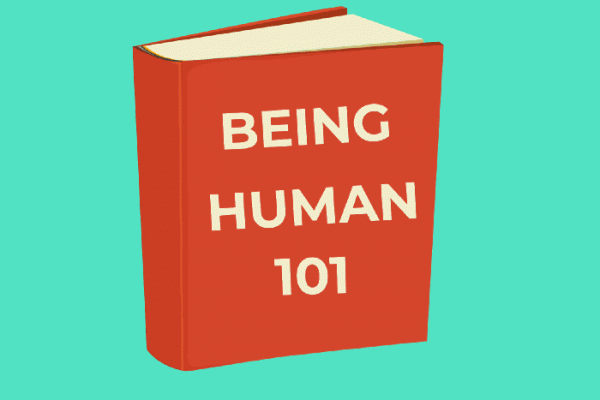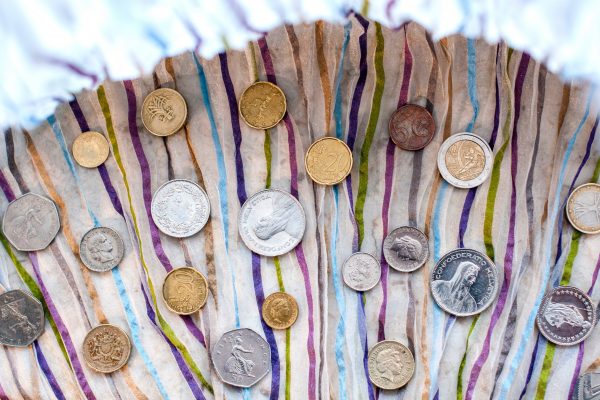The surprising power hidden in small things

In maths, ‘small is powerful’ isn’t just a cliche, it’s a fact.
Take the number 10 and place a small number two next to it. Raising it to this power immediately brings its value up to 100.
This isn’t just true in the world of numbers. History has been shaped by seemingly trivial occurrences more often than you might expect.
Tiny Histories by Dixe Wills is a thought-provoking read that details how simple events unexpectedly shaped the course of British history. Take the invention of butter chicken (there, now I have your attention!). Wills recounts the incident in Tiny Histories. 40 years ago, a bus driver having a meal in an Indian restaurant in Glasgow found it too dry because he was suffering from a stomach ulcer. Asif Ali, the restaurant owner’s son (to which we are all forever indebted) suggested adding some tomato soup to the dish, which eventually turned into chicken tikka masala.
Who knew that a stomach ulcer could be the foundation of something so beautiful?
Let’s travel further back in time to a happy accident in 1928. As Wills explains, a bacteriologist studying the flu virus decided he needed a month’s holiday (as all bacteriologists presumably do from time to time). Before he set off, he left his unwashed petri dishes in the sink. When he returned, he noticed a greenish mould on the dishes that had crowded out the bacteria. As a scientist studying microbes, realising the implications of this unappealing sight presumably brought him more happiness than his holiday did. The mould was Pencillium notatum and the scientist in question was none other than Sir Alexander Fleming. This finding became the foundation for the use of penicillin as an antibiotic.
Parents of teenagers, please take note: not washing your dishes can save millions of lives.
Here’s another example outlined in Tiny Histories. In the summer of 1831, Captain Robert FitzRoy was about to set off on a journey to South America. Realising the voyage might be a lonely one, he put out an advertisement for a naturalist who could also serve as his dinner companion. The 22-year old who responded to this invitation and travelled with FitzRoy to the Galapagos Islands was none other than Charles Darwin. 28 years later, Darwin published The Origin of The Species. Had FitzRoy not decided he could use a friend aboard the Beagle, the theory of natural selection might never have surfaced and transformed the world of science.
You might think these are exceptional stories. However, seemingly ordinary situations and events have a hidden power we often overlook.
The mundane becomes marvellous
When I was training to be a teacher, one of my university tutors modelled a sample lesson I will never forget. It was about the local history and geography of a little town in Coventry, England. She talked about unusual street names and the lives of people who had long been gone. She took completely unremarkable things, such as the types of bricks found in stone walls and the colours in old paintings into a mystery — and manage to weave them into a mystery that enraptured a group of 35 teacher trainees.
Undoubtedly, she was a deeply gifted and experienced educator. She also demonstrated something incredibly important. Every little thing in your life has the potential to spark wonder and even awe.
The glass of water you just lifted to your lips used to be sand strewn across a beach.
The phone you just played another game of Bubble Shooter on was a laughable fantasy 100 years ago.
You have no idea what could happen tomorrow. You might receive an email with an opportunity you had never imagined or a person who completely shifts your thinking.
All it takes to mine the gold that’s lying all around us is our attention and willingness to see small things anew. Getting better at this can be as simple as having a sign on your desk that reminds you to pause in the middle of a busy work day and try the 5–4–3–2–1 exercise.
Concern turns into curiosity
If you’re the kind of person who normally worries about the small stuff, here’s some good news. Dwelling on little things might feel like an inconvenient habit, but you could actually transform it into a practice that enriches your life.
Each time you come across a small annoyance — your microphone failing to work on Zoom yet again, a delivery not arriving on time, a headache before you give a big presentation — try to see it as an opportunity instead by asking a simple question: How could this help?
It may be a chance to practice patience, resilience or empathy. This relatively insignificant aggravation could prevent a bigger problem from occurring in the future, in a way you can’t yet foresee. Perhaps one day you’ll be able to share it as a funny story.
Instead of trying to get rid of your tendency to focus on small things, work on transforming the lens through which you see them. If you practice doing this often enough, you might find what previously irritated you now becomes an interesting situation worth delving into (and maybe even a source of entertainment).
Scale shifts into significance
One of the unfortunate myths of our age is that we should all aspire to make a big impact in the world. This is, to put it mildly, utter nonsense. The quality of your life isn’t measured by the number of people you influence, but by whatever you decide is purposeful.
When you choose to infuse care and consideration into everyday events, like sending your friend a novel you think he’ll enjoy or washing the dishes when it’s not your turn (but it’ll give your sister a chance to watch Money Heist), you start to find meaning everywhere.
Leaving out cookies for a neighbour who seems lonely. Taking a long walk on a crisp autumn evening. Slowly and lovingly combing your child’s hair. Trying a salsa class on your own. Starting a blog, just to see where it leads. These aren’t trivial actions; they form the foundation upon which a good life is built.
Over the course of your life, you’ll have just a few milestone moments — a particularly significant accomplishment, the birth of a child, the death of someone you dearly love. Most of our existence is made up of tiny, fleeting moments that are incredibly easy to miss; yet each of them contains within it a little seed of potential and a multitude of possibilities.
Pay just a little more attention to them, and they might lead you somewhere you’d never imagined.
To read more of my articles please visit my articles page






